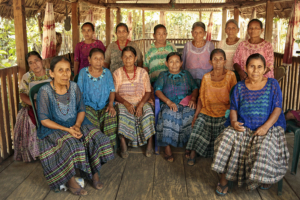World Bank Decreasing Women’s Poverty in Latin America
 Across Latin America, poverty and gender inequality trap women in cycles of financial dependence and vulnerability. Women in Latin America are five times more likely to be unemployed than men. Hence, nearly 28% of women living in Latin America experience poverty. The World Bank is tackling women’s poverty in Latin America through targeted initiatives that empower women economically and reduce their risk of gender-based violence.
Across Latin America, poverty and gender inequality trap women in cycles of financial dependence and vulnerability. Women in Latin America are five times more likely to be unemployed than men. Hence, nearly 28% of women living in Latin America experience poverty. The World Bank is tackling women’s poverty in Latin America through targeted initiatives that empower women economically and reduce their risk of gender-based violence.
Honduras’s Safe Municipalities Project
The World Bank’s Safe Municipalities Project in Honduras aims to make Honduran cities safer. First, the project empowers law enforcement locally and nationally. Second, it tackles the underlying causes of rising crime. Finally, the initiative increases the government’s ability to respond to criminal threats quickly and efficiently. Although this project aims to improve Honduran municipalities, it uniquely helps women who are the most affected by crime in Honduras.
More than a quarter of Honduran women experience physical or intimate partner violence in their lifetimes and Honduras has one of the highest global rates of femicide. Often, poverty is at the root of this, prompting the circumstances that put women at risk. However, the Safe Municipalities Project is decreasing women’s poverty in Latin America by supporting women financially and building legal systems that protect their livelihoods.
Peru’s Promoting Gender Equality Program
The World Bank is working to decrease gender-based violence in Peru in collaboration with the Ministry of Women and Vulnerable Populations. To increase awareness and response to gender-based violence, the organizations have pursued four avenues:
- Increasing teen education on gender inequality through accessible content.
- Creating a university class on sexual harassment prevention.
- Endorsing Yanapp, a new platform to help victims of gender-based violence.
- Supporting ALEGRA centers, offering legal advice to women.
Women in Peru have already seen improvements in equality, including many more women joining the workforce and receiving higher education. Despite this, they face challenges in combating societal stigma and achieving beyond the traditional framework. Therefore, this World Bank initiative is giving women more ability to report violence and introducing developmental ways of limiting gender-based violence.
El Salvador’s Integrated Social Protection Project
The Integrated Social Protection project helps the Red Solidaria program create a new conditional cash transfer system in El Salvador. This system is aimed at helping families access capital to get necessities for their children and uplift underprivileged groups. In tandem with its finance-oriented approach, the program combines social protection measures with gender-based violence prevention. It provides women with financial assistance and links them with services to escape violence, like vocational training and legal assistance.
Women are given unique access to the cash transfer system, allowing them to temporarily limit financial abuse and gain independence. Only 29% of women in El Salvador have access to a financial account, compared to 45% of men, highlighting a significant gender gap in financial inclusion. Therefore, this cash transfer system plays a vital role in bridging that divide by providing women with the same financial access as men. Economic independence is often a key factor in escaping gender-based violence and the Integrated Social Protection Project is gradually dismantling this barrier, empowering women with greater financial security and autonomy.
Brazil’s Recife Urban Upgrading Project
In Brazil, particularly in urban areas, most of the population lacks adequate housing. More than 8% of Brazilians reside in favelas or urban communities with insufficient infrastructure. To address some of the challenges associated with urban poverty, the World Bank launched the Recife Urban Upgrading Project.
The project will improve favelas with roads, drainage, sanitation and formalized housing. By supporting the government in assisting people experiencing poverty in urban areas, the World Bank is also advancing opportunities for women. In Brazil, women are disproportionately affected by homelessness and its consequences. More than one-third of Brazilian women over the age of 16 experience gender-based violence at some point in their lives, with homelessness being a significant contributing factor.
The Recife Urban Upgrading Project gives women access to housing services they would not otherwise access. Through housing and the expansion of welfare services, women gain more protection from poverty-driven violence. Through formal homeownership, women gain a foothold and financial leg up to compete with men and they are connected with new employment opportunities to improve economic stability.
Conclusion
The World Bank’s initiatives across Latin America are breaking cycles of poverty and gender inequality by improving financial inclusion, protection and opportunities for women. While challenges remain, these programs pave the way for a more equitable future.
– Divya Beeram
Divya is based in San Antonio, TX, USA and focuses on Technology and Politics for The Borgen Project.
Photo: Flickr
